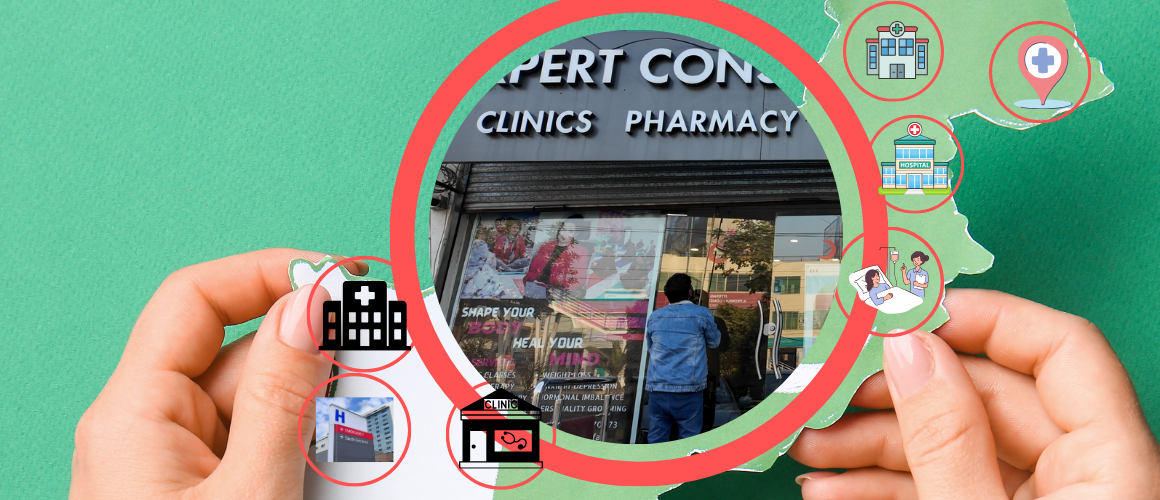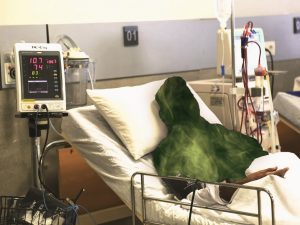Across the globe, healthcare systems strive to innovate by adopting new technology, embracing new strategies, and inviting experts from diverse fields to enhance productivity, precision, and potential. To achieve all this, large healthcare systems set up innovation labs and invest heavily in their research and development. However, the growth and innovation mindset of healthcare leaders alone is not enough for such evolution; healthcare evolution needs two more things: a literate population and trust between this population and healthcare. In Pakistan, we have neither. Would Expert Consult Clinic of Lahore be able to introduce and implement new ideas, strategies, and services in this stagnant healthcare market?
Wait Time in the Doctor’s Office
Usually, a patient in Pakistan waits for more than 2 hours in the waiting area before being able to see the doctor. While many believe this long waiting time to be poor management, in reality, this illusion is created with a calculated strategy. Doctors deliberately prolong the waiting time to achieve two goals: crowd and publicity. Usually, doctors or their assistants offer patients a 2-hour window to come in for the appointment rather than confirming a fixed time for the visit. They tell the patient that the doctor will be available between 5:00 pm and 7:00 pm rather than giving the exact appointment time, such as 5:15 pm. Since the rule is “first come, first served,” patients prefer to arrive early and wait rather than be late and wait more. It so happens that all patients turn up before 6:00 pm, crowding the waiting room, while the doctor is still nowhere near the office. As a large crowd implies busy practice, which, in turn, suggests a great doctor, patients smilingly swallow the bitter pill of prolonged wait time, for they believe that the doctor is busy, and hence good. You see how doctors in Pakistan turn two unethical things—breaking promises and undervaluing patients’ time—into a smart strategic move. They achieve this outcome only because doctors know that their patients’ reasoning capacity is limited and that these patients have no yardstick to measure a doctor’s ability other than a jampacked waiting hall.
Would any healthcare be willing to take on the challenge of providing these disillusioned patients a system that would value the patients’ time and life but at the risk of losing its own value by doing so? Take, for example, the Expert Consult Clinic of Lahore. We assign each patient a specific appointment slot, say, for instance, 10:30 am to 11:00 am. The patient arrives 5 minutes before the time and usually walks out of the office within his thirty-minute slot. Though this kind of experience sounds excellent and works well for the patient, yet such customer service often works against the doctor: as no more than two patients can be together in the waiting area at any given time, the doctor, despite having 30 patients a day, look free and, thus, unpopular. In short, valuing a patient’s time who has never been taught to value his own time can backfire. Still, the Expert Consult Clinic strives to do and teach patients what is best in their interest.
Paper Prescription
While the world has rapidly embraced paperless medical records, our doctors still prefer paper for writing prescriptions. All fault is not their. The transition from paper to digital involves more than a simple change. We cannot blame doctors’ reluctance alone as wholly responsible for holding us back in the paper era, although this reluctance is an essential factor. Many other barriers add to this drag. Lack of electricity is one. Another, even more critical, is continuously interrupted internet. Add expensive printer, paper, and maintenance to the equation, and you get the whole picture.
Our experience at the Expert Consult Clinic of Lahore tells us that maintaining digital medical records requires not only a huge cost but also manpower. A clinic needs a constant supply of electricity, which means backup generators or UPS. You must also have internet by two different carriers, as one always remains down a few days a week. Likewise, there must be two printers and a supply chain of ink cartridges and papers. To replace old paper prescriptions with all of this cannot be achieved with money alone; the most important prerequisite for such a transition is the passion for patient well-being. Then, there must be a team to translate this passion into practical bits—running printers, maintaining supply chains, and coordinating patient care among various parts of the clinic. And this is the experience of a single doctor’s office. Imagine the cost and effort of doing this for a complex health entity like a hospital!
Doctors’ Terse Talk
If you have ever consulted a doctor in Pakistan, or any healer, for that matter, your most memorable part of the visit must be the doctor’s terse talk. Like other professionals in Pakistan, our doctors prefer to keep the knowledge inside their heads. This habit, in association with their poor listening power, enables the doctors to give the patient a unique experience, leaving almost a bad taste in the patient’s mind. Surprisingly, rather than repelling the patient, this rude behavior of the doctor casts a spell over the patient, taming them like a pet. The formula appears to be “the more rude the doctor, the more satisfied the patient feels.” The roots of this patient’s obsequiousness go back to their lifelong experience of being belittled by qualified people. Because the patient has seen every person of some position (however petty the person’s station may be) in society—a businessman, a clerk, a teacher, a doctor, a politician, a celebrity—looking down upon others, he truly believes that if a doctor is rude and condescending, he must be a famous doctor. In other words, only a condescending doctor can be any good. In short, a doctor’s frowning face and curt conversation are as important a marker of qualification as his degrees and diplomas.
When such patients, who are used to fawning at arrogant-looking doctors, visit our institute, where everyone is humble and welcoming, from the front desk to the doctor, their first response is perplexity and confusion. They haven’t seen before a healthcare that is so welcoming. Naturally, it crosses their mind that they might have made a mistake, for how come a healthcare worker and a doctor can be so kind? In fact, we lost many patients in the first few months due to our ethical and professional practices. It was hard for patients to believe that highly qualified doctors could be friendly, pleasant, and empathetic. They left us for some professor who was rude and, therefore, “good.” It was not until our YouTube channel “Kidney blogs” validated the Expert Consult Clinic of Lahore as a place of highly qualified professionals, putting us on a high pedestal in the medical field in Pakistan, that they stopped doubting our intentions. This waiting period was tormenting—and prolonged. To hold out for ethical values in the dog-eats-dog market of Pakistan often seemed like a mistake. Yet we did, and it paid off. The Expert Consult Clinic not only made a place for itself in Pakistan’s healthcare system in general, but it has also set new healthcare standards in Pakistan. The patients who doubted our qualifications are now our ambassadors, advocating ethical healthcare practices that other doctors flaunt on purpose.
My Thoughts
Pakistan’s is a dystopian healthcare. In our healthcare places, all the rules of human ethics, psychology, and intellect fall flat on their face. Our doctors and non-certified healers have set very despicable standards of professionalism, and we are all sinking in this mud together. Young doctors and new hospitals have no option but to conform to the abysmal market standards. Unable to utilize their youth and vigor to elevate the system, they end up directing their energy on the wrong side, adding more rust to an already rotten system.
Providing ethical and professional services in this decayed place requires courage and caution. Our experience shows that the right strategy and persistence are necessary tools to get out of this quagmire. We invite our young doctors to join us in this effort and elevate our healthcare to the respectful position where it belongs.











